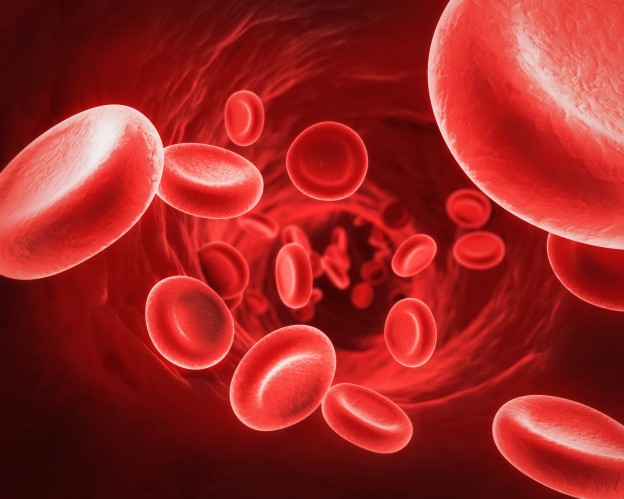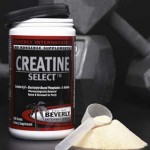Blog Entry #88
By Anthoney J. Andersen – Steroidal.com
It’s a hot summer day and you’re at the gym pushing yourself to new heights, trying to get your body ready for beach season.
You’re on your fifth set of bicep curls, the sweat cascading down your forearms as you struggle to complete your 12th repetition.
The blood floods your bicep as the veins are pushed against the wall of your skin, causing them to look like massive cable lines.
The dumb bells crash to the floor as you complete the set. As you stand – admiring your arms in the mirror – it looks as though you were just inflated with air.
Your arms are vascular. Swollen. Pumped.
Even after you take your 1 to 2 minute breather, your muscles still seem to be pulsating.
What is causing this continuous “pump” to surge throughout your body?
The answer: Nitric oxide.
ORGIN
Nitric oxide (NO) is naturally found in the bloodstream and has been proven to increase blood flow to the muscles, promoting relaxation and vasodilation to the vessels. Nitric oxide has become a widely popular supplement in the bodybuilding world in recent years.
Its “cell-signaling” molecule is responsible for blood flow, oxygen delivery, glucose uptake, power output, and muscle growth, according to an article on muscleandstrength.com.
Nitric oxide supplements have been known to increase blood flow to the muscles which is good for the typical bodybuilder or strength trainer because the more blood delivered to the muscles, the more nutrients – such as protein – are delivered to the muscle cells which help with growth and mass.
PROS
When pushing your muscles to the limit – whether by increasing weight, reps, sets, or even the number of days per week you venture to the gym – you may find yourself experiencing severe pain in your muscles the following day.
This is due to the fact that your muscle fibers have “shredded” in order to repair themselves and build an even stronger muscle around the tissue.
Taking nitric oxide before each workout will decrease the chances of your muscles becoming fatigue by generating more blood flow to the tissues while prompting the smooth muscles in the body to relax.
Since one of the key factors in muscle recovery involves nutrient delivery, the more blood and oxygen being delivered to the muscle tissues, the faster your recovery time will be – allowing you to get back to the gym as soon as possible.
CONS
Like with most supplements – whether beneficial or not – they don’t come without possible side effects. With nitric oxide, blood vessels are expanded due to the increase in blood flow, which in turn, can decrease a person’s blood pressure. Symptoms associated with low blood pressure include headaches, nausea, dizziness, and vomiting – according to MedicineNet.com.
Along with low blood pressure, nitric oxide supplements have been known to cause stomach discomfort. This includes nausea, stomach cramps, or an increase in the number of daily bowel movements.
Doctors at Medline Plus advise that a person experiencing ongoing bouts by one or more of the named side effects should discontinue use of the supplement(s) and consult their physician immediately.
BOOST NO WITH DIET
Not everybody enjoys taking pills or powders due to the unpleasant taste or size of the capsule. So, if you fall into that category, you’re in luck. Boosting nitric oxide levels in the body can be as easy as increasing the intake of certain foods and nutrients in your diet.
Since nitric oxide is synthesized by the amino acid arginine (precursor to NO), increasing NO can be achieved by simply consuming protein-rich meats, dairy, and vegetables. Plant foods, like beets and spinach, are flushed with necessary nitrates and nitrites – compounds responsible for the increase in NO in the body.
Studies have shown that consuming at least two cups of beet juice a day – which contains around 1,400 mg of nitrates, or six times the typical daily intake – can naturally boost NO levels, while increasing energy levels and supporting the immune system, according to consciouslifenews.com.
AS WE GET OLDER
As we age, it becomes increasingly difficult to train as hard as we did when we were in our 20s. It becomes even more difficult to tack on or even sustain muscle tone and definition.
Athletes 50 years of age and older have the opportunity to recapture their youth by training harder than they have in years. By taking NO supplements containing the amino acid arginine and antioxidants, you’re boosting your body’s natural exercise capabilities, according to a study in the Journal of the International Society of Sports Nutrition.
“The loss of exercise capacity with age often results in a reduction in physical fitness and more rapid ‘cell death,’” says researcher Zhaoping Li, MD, of the University of California at Los Angeles. “A dietary supplement that increases exercise capacity might help preserve physical fitness by optimizing performance and improving general health and well being in older people.”
FOOD FOR THOUGHT
As we get older, regular exercise accompanied with a balanced diet plays an essential role in maintaining a healthy lifestyle. Nitric oxide is simply an enhancement that can help deliver your body that extra boost that it needs to get you through your daily workout.
The harder you exercise, the more confident you’ll feel about continuing your workout regimen.
However, nitric oxide may not be the right supplement for you, so consult your doctor before beginning a cycle of NO. You may find out that simply changing your diet around to increase your body’s NO production may be the best course of action.
Stay pumped.







